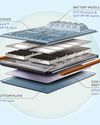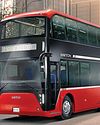
The Eighties were an action-packed decade for the Indian automotive industry and in a sense heralded the first wave of reforms.
This was the time the Japanese entered the market with the focus being on two-wheelers and light commercial vehicles (LCVs). Suddenly, a host of new brands littered the landscape ranging from Honda, Suzuki, Yamaha, and Kawasaki to Toyota, Mazda, Nissan and Mitsubishi. This was heady stuff in a market used to familiar homegrown brands such as Tata, Bajaj, Premier and Ambassador.
The mood was upbeat, especially in the two-wheeler space where alliances with local players were formed quickly. The TVS group, whose presence was confined to the moped till then, tied up with Suzuki for motorcycles while Hero, which was largely into bicycles, joined hands with Honda. Escorts, the manufacturers of Rajdoot, entered into a joint venture with Yamaha while Bajaj, the reigning scooter monarch, got into a technical agreement with Kawasaki.
In the LCV segment likewise, partnerships with local players became the order of the day with DCM Toyota, Eicher Mitsubishi, Allwyn Nissan and Swaraj Mazda. The mood was buoyant and the stage was set for an interesting tug-of-war with an established player like Telco.
All eyes were also on Suzuki which had emerged the favoured ally for the Centre in its small car project christened Maruti Udyog. The Japanese automaker also had a two-wheeler alliance with the TVS group but the stakes were a lot higher in the partnership with the Centre. After all, the Prime Minister's late son was keen on a small car project and it was Indira Gandhi's way of fulfilling Sanjay's dream.
Cost structures were key
Denne historien er fra 15th August 2022-utgaven av Autocar Professional.
Start din 7-dagers gratis prøveperiode på Magzter GOLD for å få tilgang til tusenvis av utvalgte premiumhistorier og 9000+ magasiner og aviser.
Allerede abonnent ? Logg på
Denne historien er fra 15th August 2022-utgaven av Autocar Professional.
Start din 7-dagers gratis prøveperiode på Magzter GOLD for å få tilgang til tusenvis av utvalgte premiumhistorier og 9000+ magasiner og aviser.
Allerede abonnent? Logg på

Spain's Fersa Group invests in India-based Delux Bearings
Besides theRs100 croreinvestment, the Indian company gets access toadvanced technologies and bearings with arange of applications that willhelpinits global growth strategy, writes Manobhava Baruah.

Tata Autocomp to open compact dual-clutch transmission plant
Amidthe country’s growing need for personal mobility with easy manoeuvrability, comes the demand for vehicles with automatic transmission. Tata AutoCompisready tomovein writes Shruti Mishra.

Pankaj Munjal-backed Hero Motors raises equity from GEF Cap
The company willinvest Rs1,500 crore over thenextthree years andit expects 60 percent ofits turnover to come fromelectric vehicle parts. Itaims to becomea Global EV Solutions Company from India

New age thermoplastics for next-generation EV batteries
Saudi-based global materials major SABIChas developed cutting edgein fire-resistant polymers and flame-retardant materials that comply with various EV battery safety standards across the world.

Switch Mobility to meet growing e-bus demand with fresh capex
Oncourse for abillion-dollar business, the company is exploringa possibility of operating satellite factories across the country to serve different geographies, write ShahkarAbidi and Ketan Thakkar.

Kia India to invest Rs 2,000 crore in EVS, to introduce new e-RV in 2025
New investmentto drive R&D, infrastructure development and manufacturing capabilities. The company willlocally produce EVsin India with possibility of exports as well, writes Mayank Dhingra.

"The government has given enough time for indigenisation but the industry has not taken it seriously"
Amitabh Saran, Founder and CEO, Altigreen, shares his views on problems inthe EV industry and battery localisation solutions with Amit Vijay M.

TATA MOTORS SEES ONE INTWO CARS SOLDAS EVS BY 2030
The company aims to offer wider choices withnew EVs that may straddle a pricebracket of Rs20to 40lakhinthe coming years, writes Ketan Thakkar.

MG Motor India in expansion drive, to invest $100 million
The investment willbe usedtoramp up existing production capacity from1.2to1.4-15lakh units per annum atthe automaker's Halol plantin Gujarat, writes Ketan Thakkar.

"Technology and its multiplier effect are driving business transformations and customer experiences"
Technical Centre India is one of Continental’s largest research and development centres in the world, andasa Centre of Competence’ it also develops customised products for the BRIC countries.